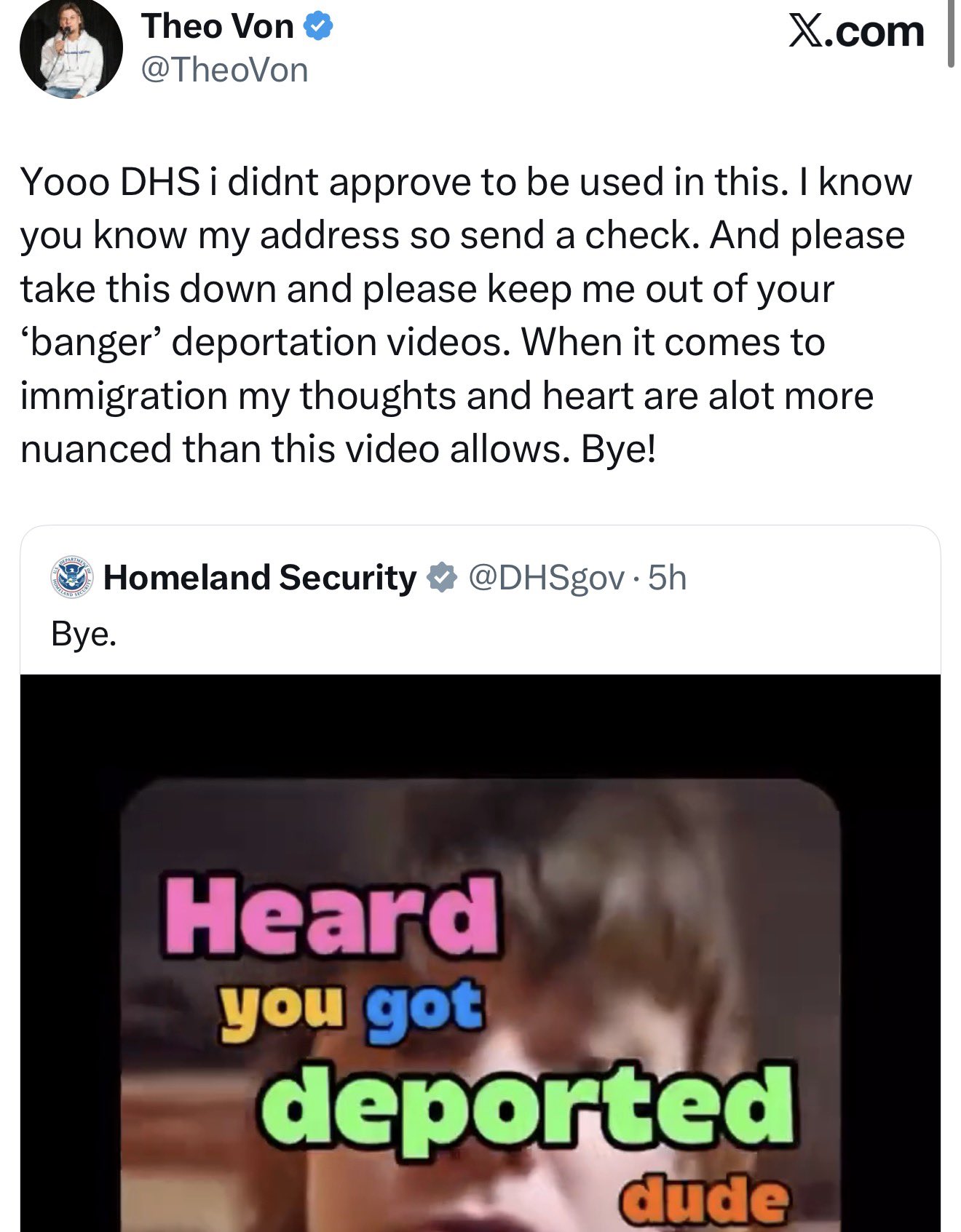In a recent mash-up of celebrities and copyrighted cartoon content, the Department of Homeland Security used video of ICE arrests to highlight their cruelty. The video made reference to the cruelty and gamification of their deportation policies on the (most appropriate) platform for this type of thing: X. In it, Ash Ketchum and Pokemon logos are shown, and the arrests are depicted as the capture of wild pokemon. As well as an out-of-context video of Theo Von lamenting (supposedly) an acquaintance’s deportation.
The blowback from a broad cross-section of the public over Donald Trump’s policies is starting to make brands and creators more conscious of towing a centrist political line. Extremes, due to the recent string of right-wing assassination, has all public figures understandably nervous as the copious amounts of firearms and disaffected youth available to use them continues to spread.
Virality in violence has undoubtedly led to this dialing down of hardline rhetoric since not everyone enjoys a security detail. Notably, even when celebrities do count on the support of private security, their survival index as of late proves insufficient for confident boistering. Thus, centrism.
theo von helped get trump elected but isn’t happy about being used in an ICE deportation video pic.twitter.com/waBZzXRyu5
— Marlow Stern (@MarlowNYC) September 24, 2025
Theo Von Reaction
In his online reaction, Theo Von appeared to have both licensing and brand usage demand for the Department of Homeland Security. The tweet on ‘X’ was essentially a desist letter in the strongest possible form.

As for Pokémon owners, Pokemon International Company, the reaction was swift and formal. The Japan based brand was certainly not about to have their family friendly avatars and likeness associated with such a despotic immigration regime. After all, Hyundai workers were just recently subject to humiliating incarceration conditions, and the story certainly shook up the Asian investor class.
Their statement was released via press release and stated: “We are aware of a recent video posted by the Department of Homeland Security that includes imagery and language associated with our brand,” the statement reads. “Our company was not involved in the creation or distribution of this content, and permission was not granted for the use of our intellectual property.”
